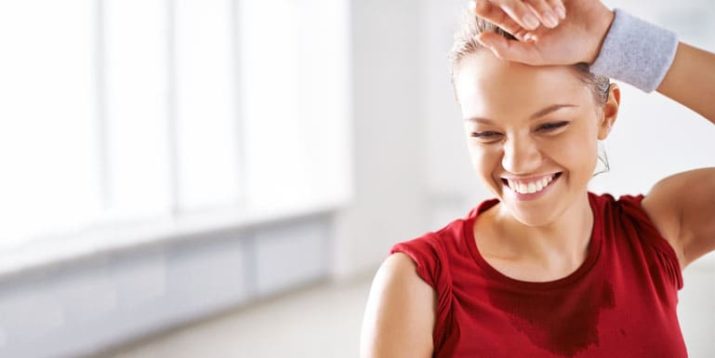5 Surprising Benefits of Exercise You Haven’t Considered

By Heather Shaw
Physical activity provides your body with an aesthetic upside, of course, but here are five more benefits of exercise — mental and physical — that could lead to a healthier, happier you.
1. Exercise May Help Alleviate Depression and Anxiety
Taking invigorating daily walks around the neighborhood may help you fight off bouts of depression.
In a study published in the journal Psychosomatic Medicine in 2007, researchers found that just 30 minutes of light- to moderate-intensity exercise (think: brisk walking or jogging) was enough to alleviate many symptoms of major depression and may be just as effective as medication.
The exact reasons are unknown, but the researchers speculated that a number of factors are at play: from being distracted from negative thoughts to balancing key neurotransmitters, including serotonin.
Exercise may also help people with anxiety disorders. When exercising, the body produces many of the same physical reactions as it does during a panic attack.
According to a study published in the journal Depression & Anxiety in 2008, exercise may help those with anxiety disorders by normalizing those sensations and teaching the brain to associate those reactions (heavy perspiration, increased breathing, elevated heart rate, etc.) with safety instead of danger.
2. Exercise Helps You Poop
That’s right: The next time you’re clogged up, try some cardio.
“Make time for moderate exercise, such as brisk walking, riding a bike or mowing the lawn. Experts recommend getting at least two-and-a-half hours of exercise per week,” the American Gastroenterological Association advises on its website for treatment of chronic constipation.
Yoga may also help keep you regular. Many practitioners believe that deep breathing combined with twisting postures can help physically move waste through the intestines.
“The overall relaxation that one experiences after yoga can also be enough to help the digestive process,” says Byron de Marsé, yoga instructor at Equinox and Santa Monica Power Yoga. “Oftentimes we are subconsciously holding tension and don’t realize it until it’s gone.”
On that point, science agrees. According to the U.S. Department of Health, yoga, meditation, and massage can all help relieve stress, and thereby improve bowel function.
See for yourself with eight yoga poses that are perfect for beginners.
3. Exercise Helps You Relax and Get Some ZZZs
If you have a hard time getting to sleep or staying asleep, try incorporating more movement into your daily routine.
In a study performed on mice, Japanese researchers found that mice that performed at least 30 minutes of exercise experienced a significant increase in the soundness of their sleep.
Those that did not exercise at all or did so for less than 30 minutes showed no difference in sleep.
The National Sleep Foundation also recommends exercise to help treat chronic insomnia, the most common sleep disorder among adults.
4. Exercise Helps You Be More Productive
One of the most common reasons people don’t exercise is due to lack of time and/or energy. Studies indicate, however, that people who exercise are more energetic and productive.
“We have decades of research showing that exercise doesn’t just lead to feeling healthy and looking good… it actually makes us better at work. Exercising regularly gets the blood flowing to the brain, which enables us to focus more effectively. It activates the memory regions of the brain so that you’re able to soak up information more quickly. And it puts us in a good mood, which is essential to collaboration and customer satisfaction,” says Ron Friedman, award-winning social psychologist and author of The Best Place to Work: The Art and Science of Creating an Extraordinary Workplace.
An example of how it works: With age, your body produces fewer brain cells.
Exercise helps combat this process by increasing the growth and development of your brain cells, which in turn improves memory and cognitive function, according to a study performed on mice and published in the Journal of Applied Physiology in 2008.
The study’s researchers found that purely through exercise (as opposed to through medication and/or surgery), the brains of both young and old mice were positively affected by exercise.
Some of these positive effects included increased learning and memory capacities.
So next time you find yourself forgetting where you put your keys consider adding a little extra boost of physical activity to your daily routine.
5. Exercise Helps Boost Your Self-Esteem
Before you can put your best face forward, you might want to work up a sweat.
Physical activity improves self-esteem, self-acceptance, self-concept, and self-efficacy, according to a 2009 paper published in The Internet Journal of Allied Health Sciences and Practice.
The authors suggest that any form of aerobic exercise will do — as long as you do it for at least 20 minutes.
